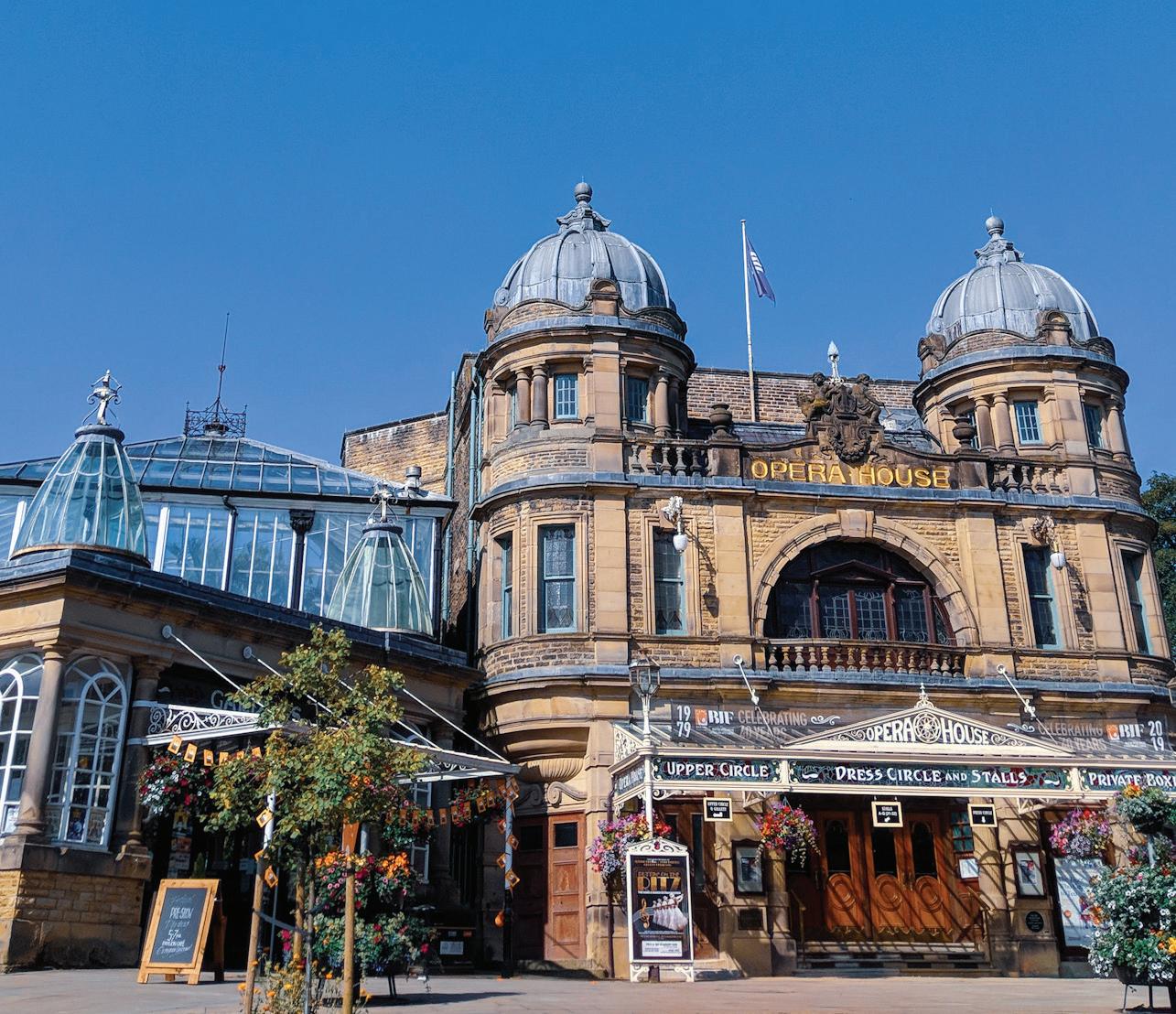
2 minute read
BUXTON FESTIVAL DANCE BAND PRESENTS
‘MUSIC TO DANCE TO’
Sunday 16 July 8pm
The Octagon £20
Zorada Temmingh
Phantom of the Opera (1925): Film with live organ accompaniment
Sunday 16 July 8.30pm – 10.15pm
St John’s Church £25, Balcony £20
After the success of her musical improvisation on the film
Sun 16 July 2pm See p.18
Once again, join us for a night in the beautiful surroundings of The Octagon as we step back in time. Our very own ten-piece big band with singers will play music that makes you want to dance. During the first set, as you sit back and enjoy a drink our professional ballroom dancers show you the moves. After the interval, the floor is open for us all to have a go at everything from the tango to the foxtrot, and from the jive to the rumba.
The Hunchback of Notre Dame (1923) Zorada Temmingh returns to the Festival with Phantom of the Opera. The 1925 American silent horror film is an adaptation of Gaston Leroux’s 1910 novel Le Fantôme de l’Opéra, directed by Rupert Julian and starring Lon Chaney in the title role of the deformed Phantom who haunts the Paris Opera House. Temmingh’s organ accompaniment of the film is based on music from the 19th century opera and ballet repertoire and uses well-known operatic motifs to depict themes and characters in the film. One of South Africa’s foremost organists, Temmingh pulls out all the stops to portray the emotional intensity of this black and white classic.
Leah Broad
Monday 17 July 10am – 11am
Pavilion Arts Centre £12
Quartet: How Four Women Changed the Musical World

Ethel Smyth was famed for her operas, a trailblazing queer Victorian composer, a largerthan-life socialite, traveller and suffragette. Rebecca Clarke was a talented violist and one of the first women hired by a professional orchestra; celebrated for her modernist experimentation. Dorothy Howell had a reputation as the ‘English Strauss’ who shot to fame at the 1919 Proms. Doreen Carwithen was one of Britain’s first female film composers, her success hiding a twenty-year affair with her married composition tutor. In their time, these women were celebrities, composing some of the century’s most popular music; today, they are ghostly presences, footnotes to male contemporaries. Until now.
Louise Thomson

Monday 17 July 11.15am – 12.15pm
Assembly Rooms £25
M Grandjany Rhapsodie
P Houdy Sonata for Harp
E Walter-Kühne Fantasy on a theme from Eugene Onegin
B Smetana Vltava, arr. Hans Trnecek
E Swift Time Spinner
H Renié Légende, after Les Elfes by Leconte de Lisle
Louise’s playing has taken her to prestigious concert venues around the UK and she has performed with many of the country’s most respected ensembles. She has played live on Radio 3, and on BBC Television with soprano Katherine Jenkins. She was a finalist in the London International Harp Competition in 2005. She is the harp tutor at Huddersfield University, a visiting tutor at RNCM and JRNCM, and teaches at Chetham’s School of Music.

Spa And Empire Festival Walk
Monday 17 July 11.30am – 1pm
Meet outside Buxton Opera House £15
See page p.34 for information about this event.
Chris Mullin
Monday 17 July 12.30pm – 1.30pm


Buxton Opera House £15
Used to Be Chris Mullin? Diaries 20102022 from Parliament in be of sufficient interest have


“When I retired from Parliament in April 2010, I ceased keeping a diary, on the assumption that life would no longer be of sufficient interest to justify doing so. It soon became apparent that I was wrong...I am under no illusion, however. Despite the occasional moment in the sunshine, I have never been much more than a fleabite on the body politic. On a visit to Parliament a couple of years after retiring, I came across a former colleague. He peered at me over the top of his glasses and said, ‘Didn’t you Use to be Chris Mullin?”
Picking up where he left off in 2010’s Decline and Fall, Chris returns to BIF with his trademark irreverence and keen eye for the absurd, to chronicle the turbulent last decade.
Il Re Pastore
Mon 17 July
7.15pm
See p.22









